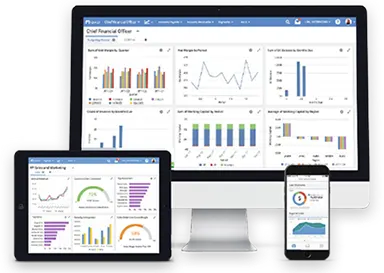ERP solutions are the foundation of any manufacturing company. They serve a solitary source of truth to all the departments in the enterprise. It is not just delivering data but also streamlines the business processes, workflows and other key areas of the business.
ERP systems have been developed over time to become more intelligent and easier-to-use. Today, they are not just a software but an essential asset or integral part of all manufacturing companies.
ERP is a centralized platform that helps for scaling your business efficiently without any manual intervention. Also, it provides real-time visibility into the production process which helps in making informed decisions about production scheduling, inventory management and other key areas of the business such as finance and customer service.
Benefits of an ERP Solution for Manufacturing Businesses
Manufacturing companies are facing a lot of challenges in the current competitive business environment. They need to stay updated with the latest technology and keep their operations efficient.
- Centralized Data Management: It integrates data from all departments in a single platform and helps for better decision-making.
- Improved Production Planning: It delivers real-time insights to understand your business and helps to improve production capacity.
- Enhanced Inventory Control: It avoids overstocking as well as stockouts.
- Quality Management: Track each product using batch numbers to manage your quality.
- Regulatory Compliance: It follows the industry standards to produce the compliant product.
- Cost Reduction: One platform that saves all your manual efforts, controls waste and reduces overall cost.
ERP solutions are a must-have for these companies as they help them manage their operations and improve productivity.
How to Choose an ERP for your Company?
ERP software is a must-have for any organizations. But with so many ERP providers in the market, it would be troublesome to choose the right one. I can help you identify the best ERP provider for your organization by looking at five different needs that an ERP system should address – accounting, inventory management, purchasing, customer relationship management and project management.
- Scalability: Ensure it can scale the end-to-end process of your business.
- Customization: It should be customizable based on your industry or business model.
- Integration Capabilities: Make sure all your existing data can be integrated into this new platform.
- User-friendliness: It must provide an easy picture to understand the status of your business.
- Security Features: Ensure data encryption, protection, and access controls are safe.
- Support: Ensure the support can be provided 24/7.
SAP Business One is an all-in-one platform that can control finance, operations, supply chain and more. It is a suitable ERP for SMEs to Streamline the manufacturing business process.
eNoah is a reliable partner with proven results who can bring the full potential of SAP Business One ERP.

